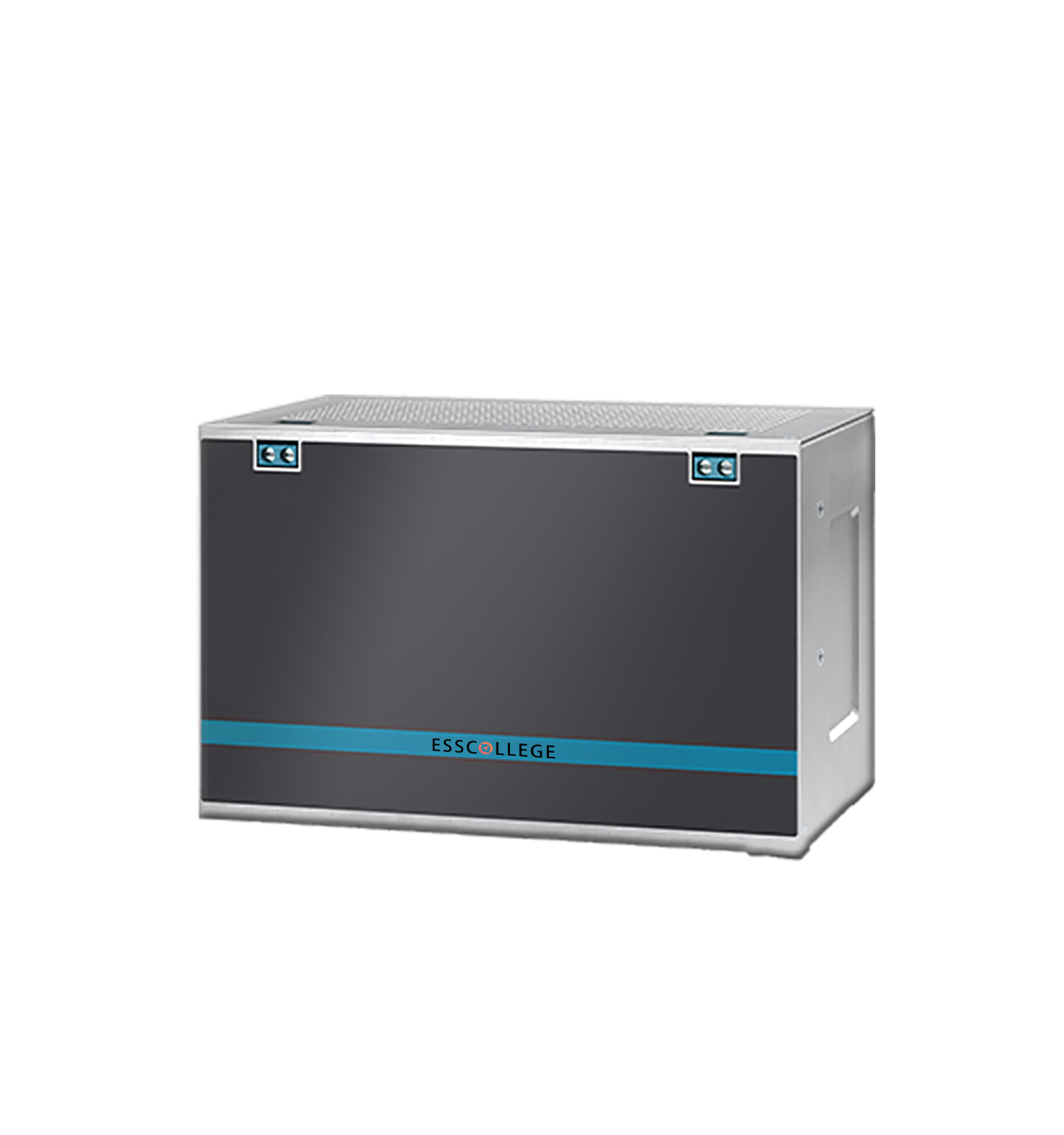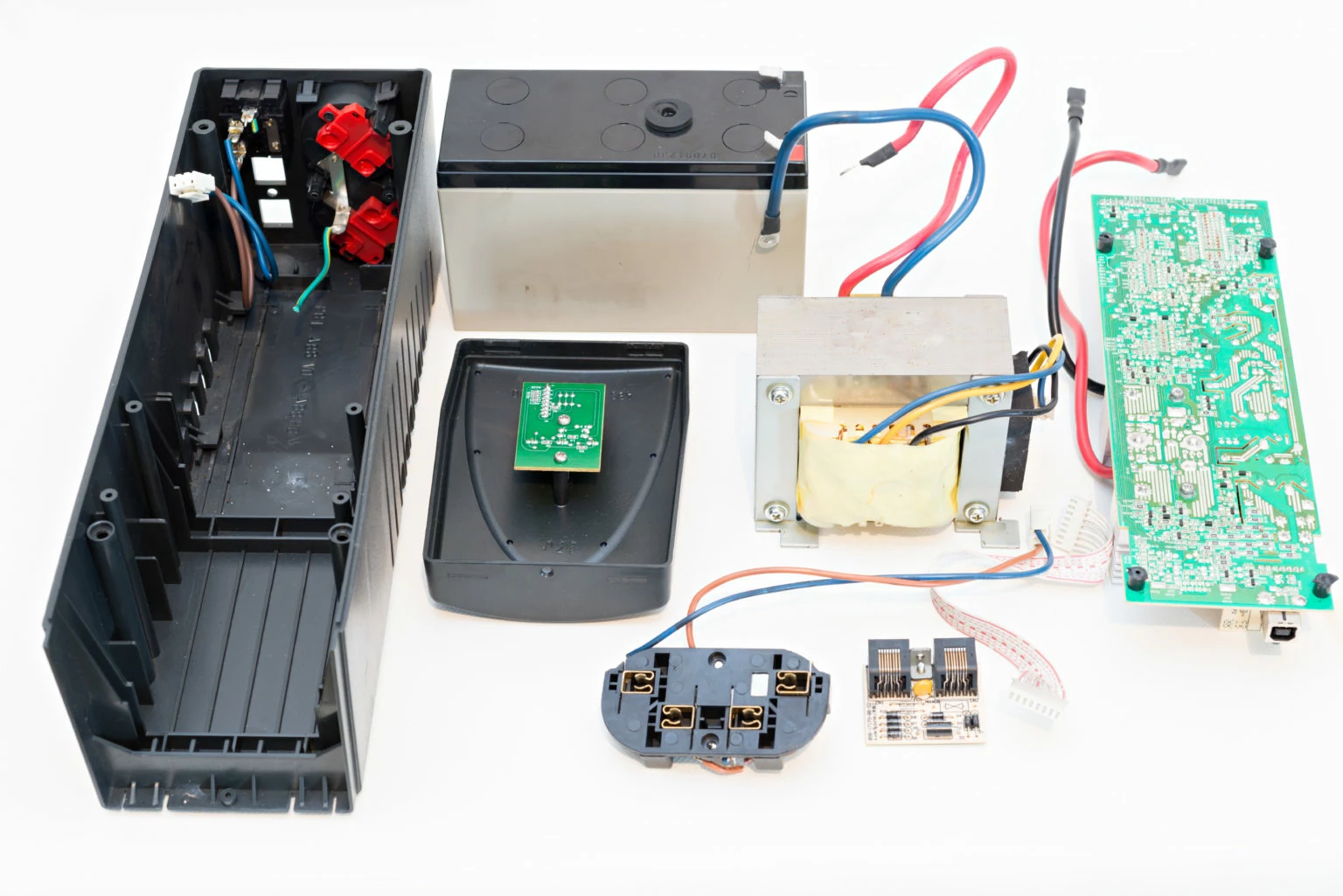Charging capacity efficiency and its influencing factors
In the design and use of uninterruptible power supply (UPS), the efficiency of charging capacity is a crucial performance index. It defines the ratio between the amount of energy the UPS receives from the power supply during charging and the amount of energy that can be efficiently stored into the battery. Improving charging capacity efficiency not only extends battery life, but also ensures more reliable power support in the event of a power outage. This paper will focus on several key factors that affect the efficiency of UPS charging capacity, including the temperature rise inside the battery, the reversibility of chemical reactions and the charging speed.
Main content
Temperature rise inside the battery
The battery will generate a certain amount of heat during the charging process, and the temperature rise is one of the main factors leading to the reduction of the efficiency of the charging capacity. Too high a temperature will accelerate the rate of chemical reactions inside the battery, but it will also lead to an increase in energy loss. This process is mainly reflected in the following aspects: Heat loss: When the battery temperature rises, part of the electrical energy is converted into heat energy and is wasted, resulting in a reduction in the effective charging capacity of the battery. Attenuation of battery performance: Long-term high temperature operation will lead to the aging of battery materials, affecting its energy storage capacity and charge and discharge performance, thereby reducing the overall charging efficiency.
Reversibility of chemical reactions
Batteries used in UPS, such as lead-acid or lithium-ion batteries, rely on chemical reactions to store and release electrical energy. The reversibility of the chemical reaction directly affects the efficiency of the charging capacity. Here are some relevant aspects:
Advantages of reversible reaction: Under ideal circumstances, the charging process should be completely reversible, that is, the reaction performed during charging and the reaction performed during discharge can be completely reversed. However, in actual use, due to the influence of internal impedance, polarization and temperature, the reversibility of the reaction will be limited to a certain extent, resulting in the actual charging capacity is lower than the theoretical maximum capacity.
Side reactions: In some cases, side reactions may occur during the charging process (such as the water evolution phenomenon of lead-acid batteries), which not only will not produce available energy, but will consume effective charging energy, thereby reducing the efficiency of charging capacity. In order to improve the efficiency of charging capacity, the selection and optimization of battery materials and electrolytes will play an important role in the reversibility of chemical reactions.
Charging speed
Charging speed is another key factor affecting the efficiency of charging capacity. Charging too fast or too slow can lead to a loss of efficiency:
Fast charging: Although fast charging can reduce the charging time, too fast charging rate can cause the battery to overheat, generate additional heat loss, and increase the risk of side reactions. Therefore, fast charging may improve the charging efficiency of the battery in the short term, but it may lead to decreased efficiency and shortened battery life in the long term.
Selection of appropriate charging speed: By selecting the appropriate charging rate, the charging capacity efficiency can be improved under the premise of ensuring safety. Modern UPS systems are often equipped with intelligent charge management systems that can intelligently adjust the charging speed according to the battery status, environmental conditions and load demands, thereby optimizing the charging process and improving the efficiency of the charging capacity.
CONCLUSION
Improving the efficiency of UPS charging capacity is the key to ensure its reliability and economy. Factors such as the internal temperature rise of the battery, the reversibility of the chemical reaction and the charging speed all greatly affect the effectiveness of the charging capability. Understanding and optimizing these factors can not only improve the charging efficiency, but also extend the service life of the UPS. Therefore, when selecting and maintaining the UPS, users need to consider these influencing factors and formulate a reasonable charging strategy to achieve the best working performance.

UPS BATTERY SERIES
UPS (Uninterruptible Power Supply) batteries are an important component of power supply systems designed to provide stable power support for electronic devices.
THE ESSC Brand promise
Global supply
Our products sell well all over the world, covering many countries and regions, through the global logistics network, to provide customers with convenient purchasing experience.
Rigorous quality
We adhere to the highest quality control standards to ensure every product meets industry regulations and customer expectations, earning trust through consistent excellence.
Excellent service
With a customer-centric approach, we provide prompt responses, professional support, and personalized services, aiming to deliver the best user experience and long-term value.





